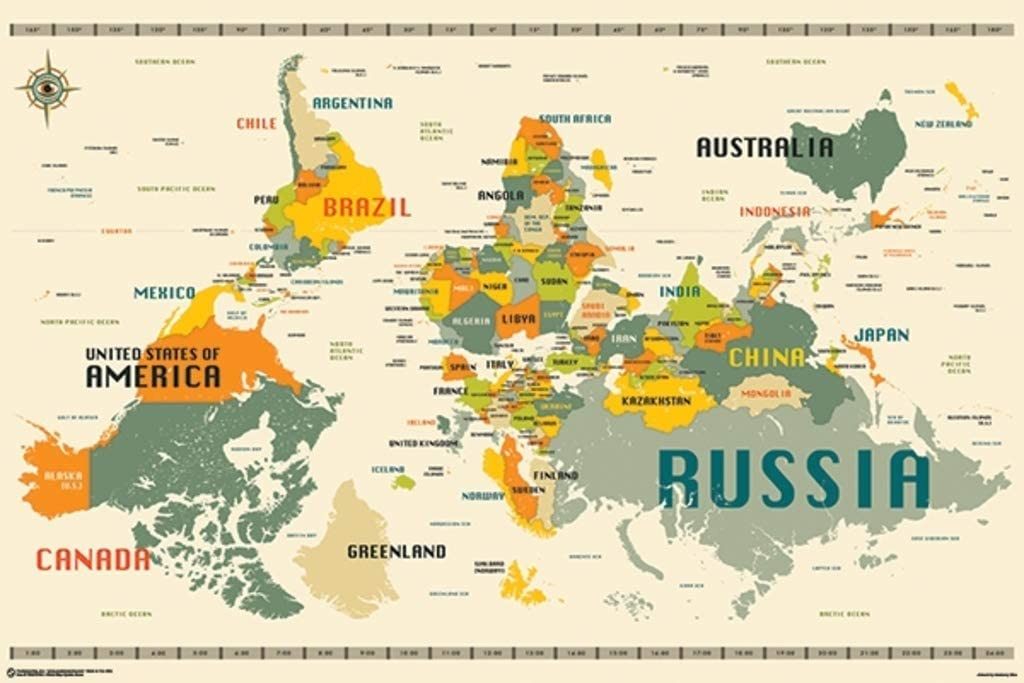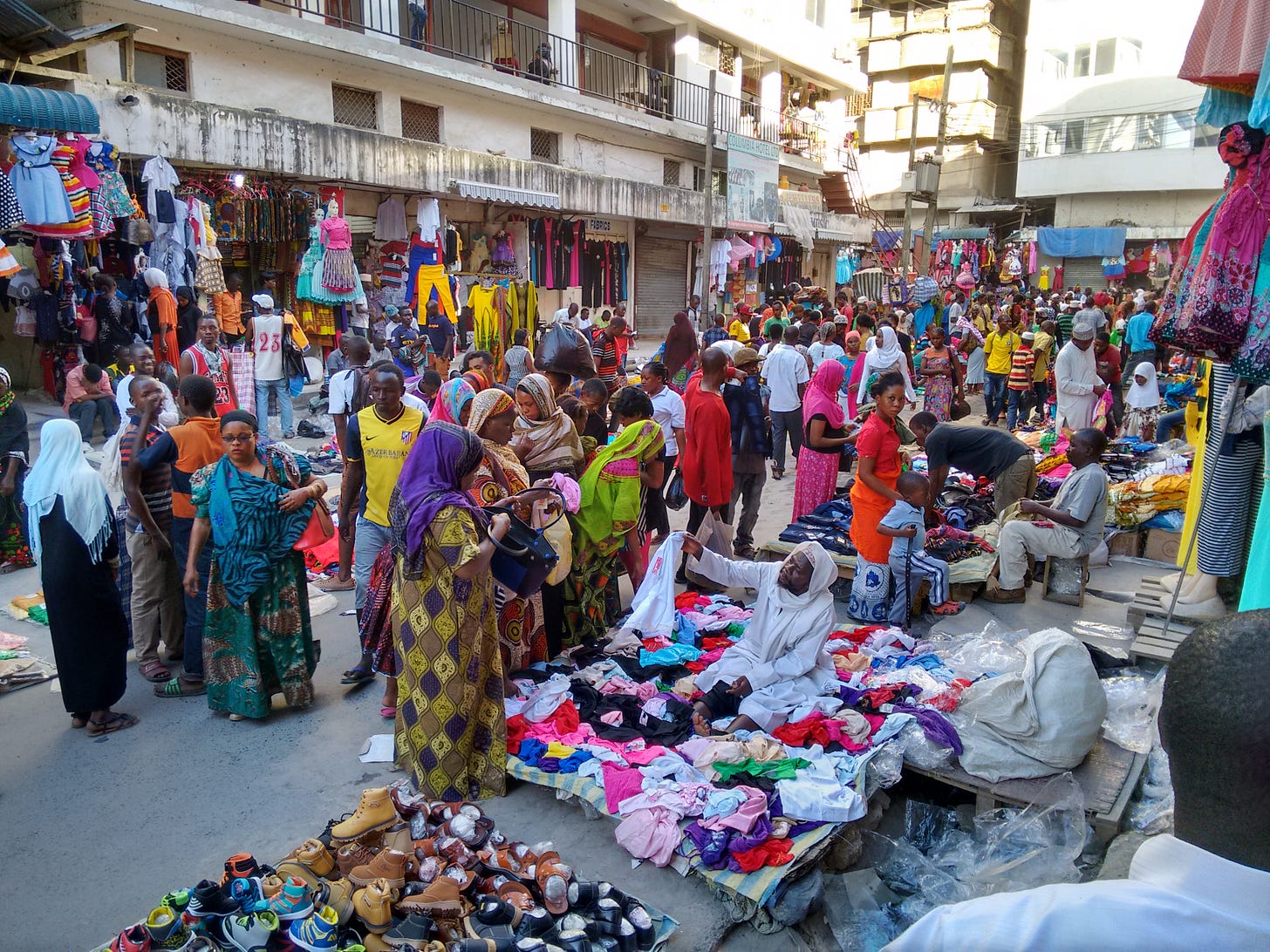Late last night, the sun moved into the tropical sign of Cancer, marking the summer solstice in the Northern Hemisphere, and the winter solstice in the Southern Hemisphere.
The solstice occurs when the Earth’s 23.45 degree tilted, rotational axis dips the Northern Hemisphere toward the sun, bathing it in more sunlight than any other day of the year. At the same time, for those below the equator, June 21st marks the shortest and darkest day of the year - the winter solstice.
The specific nature of the Earth’s axis has long been considered by scientists to be one of the possible explanations as to why our planet is capable of sustaining life.
Other planets have a tilted axis too - some are hardly noticeable, like Mercury’s, while others are more drastic, like Uranus’, which causes the planet to lean on its side at almost 90 degrees. Some planets, like Mars, have an axis similar to Earth’s, but lack the gravitational pull of a moon like ours to ensure the tilt remains steady and constant over time. Without the tilt, we wouldn’t have seasons, and without the moon, the seasons wouldn’t be consistent. The consistency of the cycle is what sustains life as we know it.
Of course, just because the cycle is consistent, doesn’t mean each of us experiences it in the same way. After all, right now in the Northern Hemisphere it’s the middle of summer, while in the Southern Hemisphere, it’s the middle of winter. To me, this begs the question of why we insist on calling June 21st the “summer” solstice? Why is the cycle of the Northern Hemisphere prioritized? And, while we’re at it, we might as well also ask why the Northern Hemisphere is considered to be “North” when there is no such thing as “up” or “down” in space. Is there a greater significance to these value-laden categorizations than we realize?
I was recently speaking to my friend Nadia about some of my experiences in Africa, and how it feels as if the “old” and the “new” are very close together here. Native, indigenous ways of living are rubbing right up against modern civilization, and the shift from one to the other is palpable in a way I’ve never experienced before. Driving down the streets of Dar Es Salaam in Tanzania, I felt an unrelenting urge to jump out of the taxi, wave my hands at everyone walking down the street and yell “Stop! You’re going in the wrong direction! I promise you don’t want what’s at the end of this path!”
Nadia reflected on a similar experience she had living alongside the indigenous Bribri people in Costa Rica. She was living Costa Rica to learn about permaculture, and to opt out of the civilized world in whatever way she could. She lived in a tent without electricity, learned to identify the local plants, ate off the land, and stopped wearing shoes. At the same time, she was witnessing the Bribri people going in the opposite direction. They were moving out of their traditional homes, learning Spanish, and wearing modern clothes. She too had the inclination to tell them to stop, confident that they were going the wrong way.
“It’s like we were crossing,” Nadia explained. She was opting out of civilization as they were opting in, and their paths just happened to be crossing at this specific point in time and space, like some sort of historical equinox.
Cycles exist far beyond those of the moon, planets and seasons. They exist within storytelling, ecology, biology and psychology, and each cycle occurs along its own unique timeline. Whether it’s Joseph Campbell’s hero’s journey, the 28-day menstruation cycle, the 27.5 million year cycle of geological changes on earth, or the multilayered biochemical cycles of fermentation, compost, oxygen, and water, we all exist within many different interwoven and interconnected cycles.
I’ve spent a lot of time thinking, writing and talking about how I don’t think modern civilization has been beneficial, and I still firmly believe this to be true. Agriculture, resource accumulation, private property, (many forms of) technology, capitalism, and hierarchical power structures have destroyed the ecological balance of our planet, and provoked overpopulation, widespread disease, loneliness, unhappiness, multiple forms of inequality, etc.
While there are undeniably some modern conveniences I won’t deny that I enjoy, (hot baths, comfortable beds, books, education, and access to healthcare, just to name a few), I’ve often claimed that I would trade it all to go back to the basics of hunting, gathering, living off the land, and belonging to a small, egalitarian tribe.
However, this trip to Africa has made me realize that I’ve been a bit pompous and naive about the importance and relevance of my own cyclical timeline, and the assumptions I’ve made as a result.
For example, upon learning about the eviction of Maasai from the Ngorongoro conservation area, my knee-jerk outrage quickly led to confusion and some uncomfortable reconsideration when I met a Maasai man (who you will hear on the podcast soon) speak about his first-hand experience of the negative aspects of his own culture, especially as it relates to overpopulation and overgrazing. My confusion continued to grow as I researched the prevalence of female circumcision and cattle raiding among the Maasai, the lack of sustainability of ritualistic predator killing within a population that has almost tripled in the last thirty years, and the practice of cattle accumulation as a means to demonstrate wealth and status, even within a tribe generally considered to be nomadic pastoralists, presumably uninterested in the value structures of modern civilization.
If a Maasai girl came to me and said she’d rather get an education than be forced into female circumcision and an arranged marriage at age twelve, would I really advise her to forgo the modern education she desires in exchange for her indigenous culture’s traditional values?
Of course, none of this is to say that the values of Western education should be impartially applauded, nor am I claiming that “past” and “future” can be compared in such simple terms, but ultimately, who am I to claim to know which is “better”?
Eventually I started to ask myself why I assumed I had a right to tell anyone that they were going in the wrong direction. Was it fair for me to romanticize “the past” while simultaneously judging others for romanticizing “the future”? What even is “the past” or “the future”? How can I accurately claim to know which path is going “forward” and which is going “backward”? What is “old” and what is “new”?
Can I accurately assess where any story “begins” and “ends?”
If the specific nature of the Earth’s axis is considered by scientists to be an explanation as to why our planet is capable of sustaining life, then this explanation isn’t just related to the importance of cycles, but more specifically, to the importance of their interwoven and paradoxical nature. One flower dies as another one grows, one relationship ends as another begins, one person enters a dark night while another reemerges into the light.
The June 21st solstice represents both summer and winter, light and dark, day and night. By the time the December 21st solstice rolls around, the same will be true, although the hemispheres will be flipped in their proximity to the sun. While the Northern Hemisphere hibernates for winter, the Southern Hemisphere will be basking in the heat of the sun’s rays.
Perhaps the solstice is trying to tell us a tale about the importance of concurrent timelines, and the inevitability of interwoven, interconnected cycles that cross and weave through one another in time and space. While part of the beauty of this process is our ability to learn from one another, it’s important to remember that our story will only ever be ours, and someone else’s story will only ever be theirs.
So, in honor of the solstice, I wish you a fun and fulfilling ride on what Joni Mitchell aptly calls “the carousel of time.” If you see me when you come around on the other side, make sure to wave and say hello.







I have been along this journey on some subconscious level for awhile now. Thank you for articulating what I have been feeling: that I am no one to judge people leaving Western cultures to return to the land in a more indigenous culture or people leaving indigenous cultures for Western cultures. Each person in this world is going to make decisions, some may be mistakes and others may better their lives. I'm personally trying to take a deep breath and let go of trying to control everything. It is a cyclical dance and I think any control I think I have is an illusion. I've also been trying to let go of trying to be the solution guy. The problems of climate change, wealth inequality, etc. are so complicated and I can't solve them on my own.
Hey Anya ! As usual, thank you for sharing with us, almost in real time, your thoughts during your journey. I was born in northern Africa, and I spent a lot of summers in southern Spain (so it was awesome to see your pictures overthere, I have only good memories of Cordoba, Seville…). I’ve never been to sub-Saharan Africa, and I didn’t witness the paradox of people escaping civilization to finally find themselves in communities irremediably attracted to the same civilization.
In spite of that, I just wanna share one of my trivial but revealing cultural shock when I went to Japan in the summer of 2008. Me and my buddy were mesmerized by people on the metro : 90% of them were head down, watching their phones.
Basically, we were like : this place is the future ! Their phones can do/provide so many things. They’re carrying a mini-computer with them.
And also : It’s impressive, but look at their neck and spine. It’s awful !
Maybe one day, technology will catch up in France. But come on ! There’s no way that the majority of passengers will be so silent and bent over like this.
But somehow, in less than 5 years it happened.
In 2013, I was with a Moroccan friend in Paris. He was there for a short visit to a family member. We were on a bus. 90% of people were watching their phones. He told me :
my God, look at these poor people. Nobody talks to her/his seatmate. This will never happen in Morocco. Even if they give free smartphones to everybody, we just love to talk/gossip/argue. It’s in our blood !
In 2017, I went to Casablanca to say goodbye to my cousins before moving to Montreal. One day, I took the brand-new tramway to go downtown.
I guess you already guessed it : 90% of people were watching their phones.
The conclusion that I draw from this is that we’re witnessing the birth of a man-made planetary nervous system. It’s unprecedented, it’s scary (the speed is the part that scares me the most) and I really don’t have any clue about the final result.
However, I also belive that being "just" a witness of this era is a kind of privilege.
After all, it's a just another ride on the carousel of time.